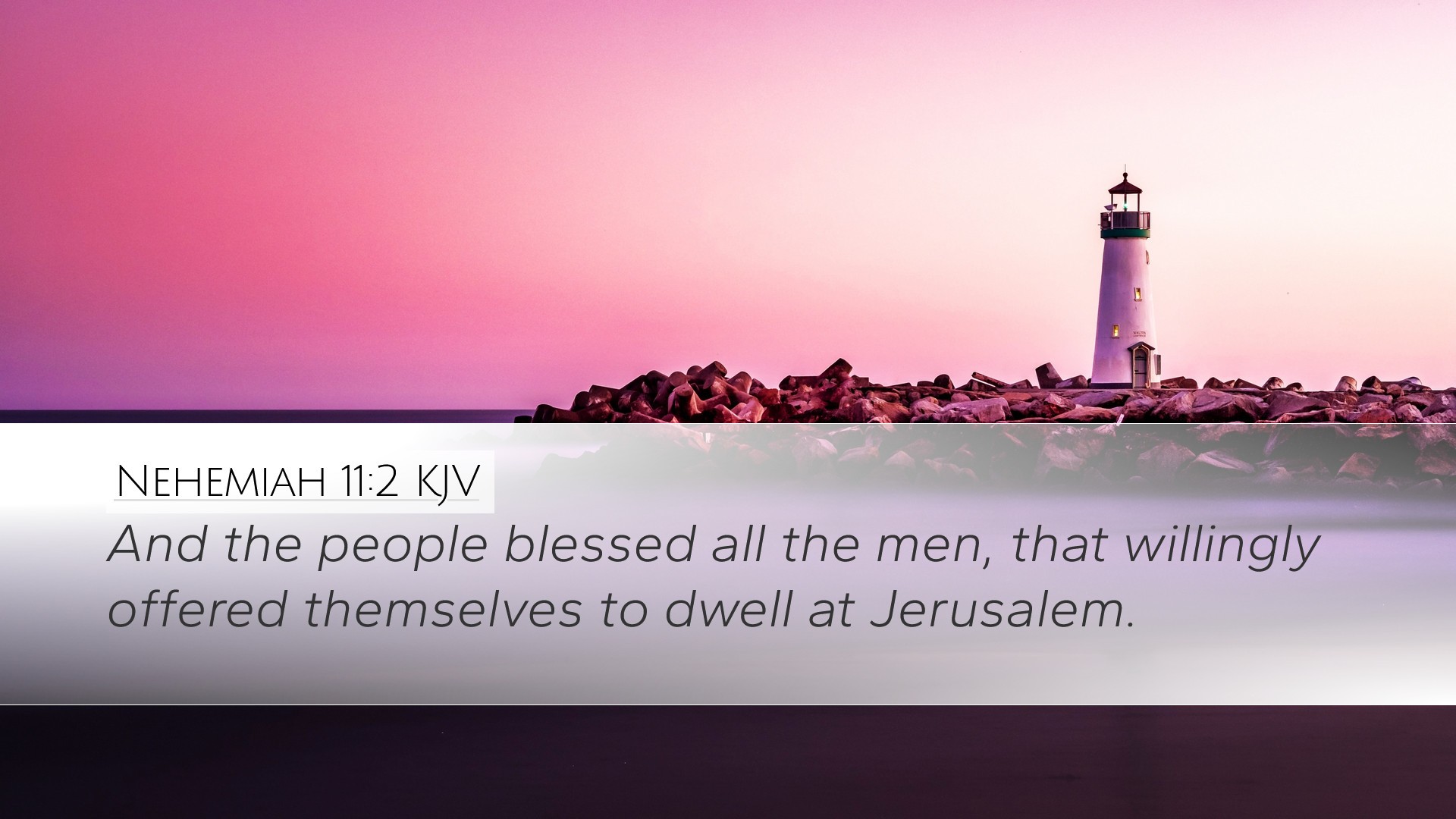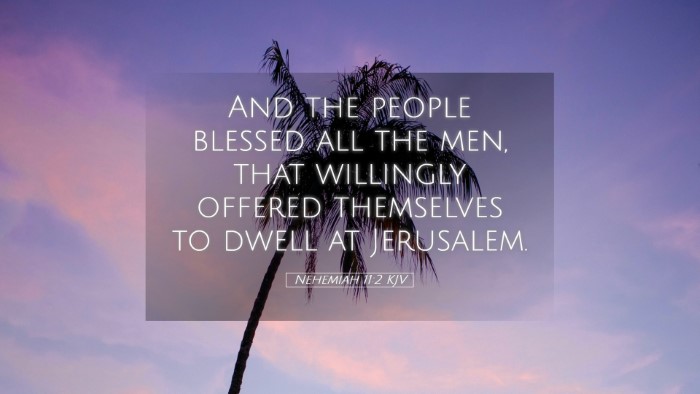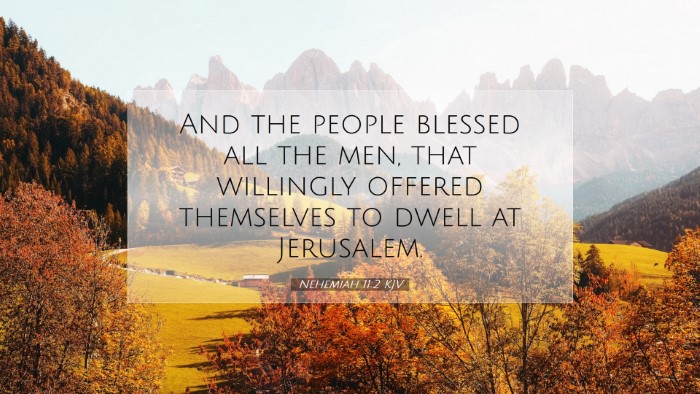Commentary on Nehemiah 11:2
Verse Context: Nehemiah 11:2 states, “And the people blessed all the men that willingly offered themselves to dwell at Jerusalem.” This verse falls within the broader narrative of Nehemiah’s efforts to restore Jerusalem after the exile, solidifying the community of returned exiles to maintain the city’s walls and spiritual vitality.
Interpretation and Analysis
This verse highlights two key elements of spiritual and community life: willing service and the blessing of community. Understanding these elements sheds light on the broader themes of Nehemiah and the nature of God’s people.
The Nature of Willing Service
Matthew Henry's Commentary reflects that the individuals who stepped forward to inhabit Jerusalem did so voluntarily. This implies a sense of commitment and personal investment in the community’s future. The willingness of these people signifies the power of free will in serving God and each other. They chose to leave their comfort for the sake of their communal heritage and faith, highlighting a point of spiritual maturity.
The Importance of Community Blessing
Albert Barnes observes that the act of blessing is significant - it represents the communal acknowledgment and gratitude towards those who stepped forward in faith. This is an essential part of the communal life of Israel. It is vital to remember that this act of blessing wasn't merely a formality; it was a spiritual and ritualistic act that reinforced the communal bonds and the culture of support within the returning exiles. Blessings function to foster unity, strengthen communal identity, and invoke God’s favor upon the willing participants. Through such blessings, the people unite in their mission to restore and prosper the city.
Divine and Community Responsibilities
Adam Clarke’s Commentary emphasizes the dual responsibilities of the people to God and to one another. By agreeing to dwell in Jerusalem, these individuals undertook not only to restore physical structures but also to enhance the spiritual essence of their community. Nehemiah’s leadership inspired action driven by a shared vision, demonstrating that the Lord requires participation in His work. The acknowledgment and empowerment of community members through mutual blessing reflect a theology where every voice and choice contributes to the divine narrative.
The Theological Implications
This verse encapsulates essential theological principles regarding the nature of God’s chosen people. It embodies the following critical insights:
- Community Identity: The act of moving to Jerusalem wasn't merely a geographical change but a re-establishment of identity as God’s people.
- Willingness in Service: The importance of voluntary service to God wrestles against notions of coerced faith, reinforcing that God desires willing hearts.
- Shared Blessings: The importance placed on communal blessings demonstrates that individual actions contribute to the larger story of God’s people.
Practical Applications for Today’s Church
1. Cultivating a Culture of Willingness: Churches today must continue to inspire willing service within their congregations. Encouraging community members to engage in service not out of obligation but out of desire strengthens faith and community. Leaders should embody this principle, modeling servant leadership.
2. Celebrating Contributions: Just as the community blessed those who moved to Jerusalem, modern congregations must find ways to honor and recognize the contributions of dedicated members. This can foster an atmosphere of gratitude and communal appreciation.
3. Building Community Bonds: The church must reinforce the idea that every member's input is vital. Programs that develop relationships among congregants can enhance unity and collective purpose, akin to how the returned exiles united in rebuilding Jerusalem.
Conclusion
Nehemiah 11:2 serves as a powerful reminder of the collaborative nature of faith, emphasizing willing service and the importance of community blessing. By implementing these principles in today's contexts, churches can navigate their challenges with resilience and unity, fulfilling their calling as a vibrant community of faith.


